The world is heating up, and so is the need for jobs that tackle climate change. We’re seeing more forest fires, floods, and wild weather, which means more people are needed to stand against these challenges.
Did you know? According to the International Labor Organization (ILO), renewable energy jobs have hit 12.7 million globally.
But here’s a thought – you don’t need to be a lab-coat-wearing scientist to make a difference. Climate change touches everything – the food on our plates, the clothes on our backs, and how we stay cool or cozy at home.
So, whatever your skills, there’s probably a climate change job that’s right up your alley.
Curious about where you could fit in?
We’ve got you covered, with a rundown of top jobs in this field, whether you’re just starting out, looking to step up, or ready to take charge. Let’s dive into some exciting opportunities that not only promise a career but also a chance to make a real difference.
1. Urban Grower
Even if you reside in a bustling city, transforming your flat roof into an apple orchard or a petite tomato plantation is an exciting possibility.
Engaging in green roof gardening could serve as a fulfilling part-time pursuit, requiring no specific qualifications, although a bit of gardening experience is beneficial.
As you cultivate your rooftop garden, not only do you nurture your green thumb, but you also position yourself as a local vegetable supplier for markets and environmentally conscious food businesses.
This concept is especially appealing if you have a passion for gardening!

2. Public Green Space Maintenance Professional
This occupation encompasses a diverse range of tasks, ranging from clearing pathways in public parks post-storm to conducting comprehensive botanic surveys of all plants within a designated area.
While certain roles in this field are entry-level, others may necessitate a technical college diploma or specialized training provided by the employing company.
3. Administrative Support Worker
Administrative support plays a crucial, albeit sometimes overlooked, role in every company.
Given the escalating focus on climate change and sustainability, the responsibilities of administrative workers may undergo a transformation. Moving beyond traditional clerical duties, their role may expand to encompass substantial involvement in large-scale environmental data collection, grassroots organizing, and enhanced communication efforts.
4. Brownfield Restorer
The United States boasts over 450,000 brownfield properties, and this role involves the responsible assessment, cleaning, and redevelopment of these sites, varying from expansive former factories to deserted gas stations.
Within this domain, opportunities abound for job seekers with diverse skill sets, including those with administrative expertise, technical proficiency, and hands-on manual labor skills.
5. Invasive Species Controller
Whether armed with a biology degree or fueled by a passion for nature and the great outdoors, opportunities abound in government agencies or private companies dedicated to curbing the proliferation of invasive species threatening native wildlife.
Within this role, you could engage in various farm operations or collaborate with a team of rangers in a national park setting.
6. Energy Auditor
Embarking on a career as an energy auditor means taking on the responsibility of conducting official inspections and assessments to gauge the energy consumption of both residential and commercial structures.
In the course of their duties, energy auditors employ specialized equipment, including blower doors to measure the airtightness of various rooms and infrared cameras to identify areas around doors and windows where heat is escaping.
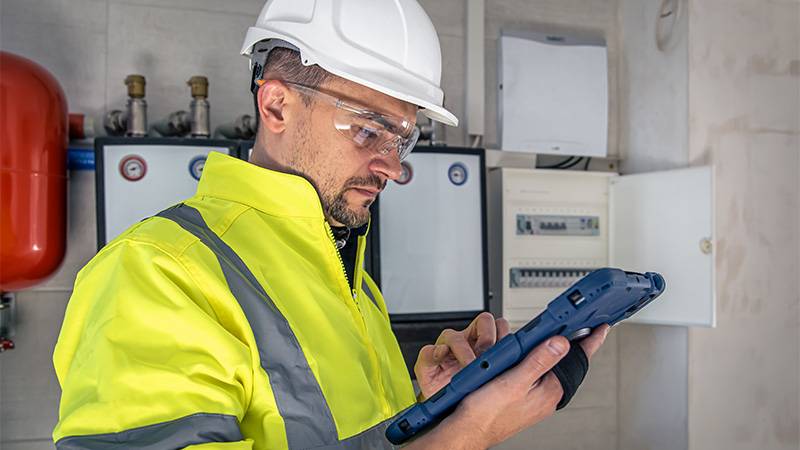
7. Weatherization Expert
Following a building inspection by an energy auditor, the next step often involves bringing in a weatherization expert. This professional is tasked with suggesting and implementing energy-efficiency enhancements, ranging from minimizing air leaks and enhancing ventilation to moisture control and the construction of barriers against sunlight or wind.
To step into this role, individuals typically undergo a training program, either at a technical school or provided by the employer.
Find weatherization job offers now.
8. Pedestrian And Bike Lane Construction Consultant
As government officials commit to decreasing carbon footprints, a growing investor demand is anticipated for professionals such as city planners, transportation engineers, and construction workers. These individuals will play pivotal roles in the creation of new pedestrian and bike lanes, particularly in areas lacking public transport options.
For those actively seeking employment with a background in urban planning, transportation, or public space construction, this opportunity could be a perfect fit for you.

9. Renewable Energy Installer
With the potential adoption of the Green New Deal, the ambitious goal is set for all energy consumption to originate from clean, renewable, and zero-emission sources by 2030.
Consequently, there will be a surge in demand for professionals, encompassing employers as well as engineers and technicians with expertise in solar panels, wind turbines, and geothermal energy installations.
Due to this heightened demand, this job is one of the best paying jobs in energy in the United States.

10. Community Educator
Community educators play a crucial role in the battle against climate change, equipping communities with the essential knowledge and skills to initiate localized efforts in combating environmental challenges.
Opportunities in this field abound, with employment prospects spanning schools, government agencies, human rights groups, and various local institutions. Alternatively, individuals may opt to spearhead workshops and training events.
For those holding a bachelor’s degree, this position presents itself as a potential long-term career path.

Environmental people sometimes focus only on the final outcome of their work, but job seekers may be better served by paying attention to daily activities. What do you want to actually do all day? Do you want to write, organize, research, do scientific data gathering, or something else? Think in terms of verbs and you’ll know a lot about whether you’ll be competitive for a job.
— Kevin Doyle, Environmental Career Coach at the Green Career Advisor
11. Disaster Preparedness Trainer
In the role of a disaster preparedness professional, your primary responsibility is to facilitate swift and effective responses to emergencies for the government, communities, and other public safety workers.
The scope of coordinating disaster preparedness efforts extends beyond weather-related incidents. Given the profound impact of climate change, this role also encompasses addressing enduring natural disasters, including the management of disease epidemics.
Find job offers in disaster preparedness and mitigation here.
12. Waste Removal And Recycling Professional
With China discontinuing the import of various essential American recyclables, businesses specializing in collecting, sorting, processing, and recycling waste could seize a valuable opportunity.
This thriving industry holds potential appeal for job seekers, whether equipped with an environmental degree or a high school diploma.
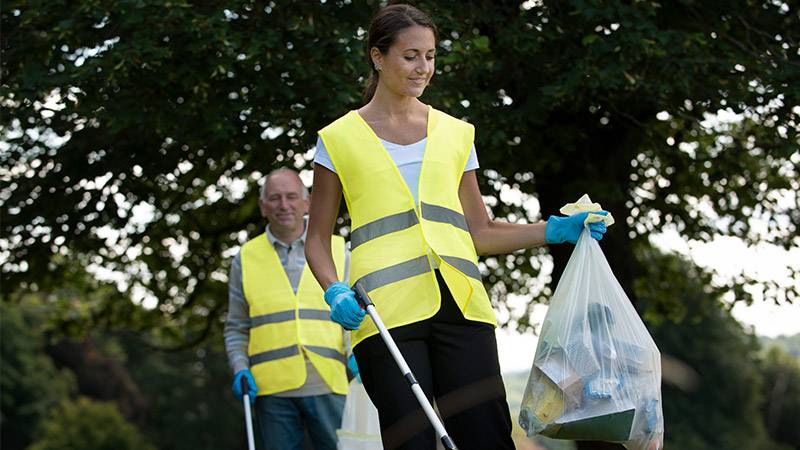
13. Sustainability Consultant
Sustainability consultants play a pivotal role in guiding businesses and organizations on enhancing their environmental sustainability, integrating climate change programs seamlessly into their operations.
In addition to this, you might offer specialized scenario analysis support for investors or adeptly synthesize and communicate market drivers for sustainability-related issues. To step into the role of a sustainability consultant, a bachelor’s degree in business or sustainability is typically required.
14. Power Grid Modernization Expert
This job involves actively participating in programs aimed at modernizing the current electrical grid, ensuring the efficient distribution of emerging renewable energy sources throughout the country.
These types of renewable energy jobs are well-suited for job seekers possessing an electrical engineering degree or technical college diplomas. However, it’s worth noting that the involvement of communications and marketing experts is equally crucial in facilitating these transformative changes.
Discover more electrical engineer jobs here.
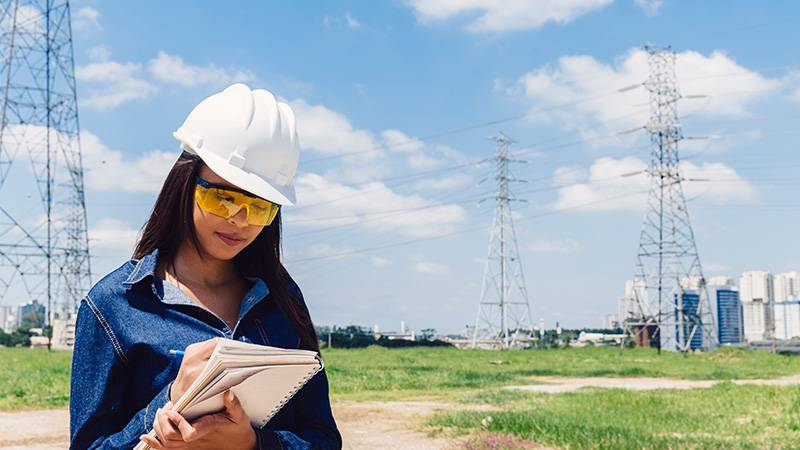
15. Environmental Lawyer
Attorneys specializing in sustainability, renewable energy, and climate change find full-time positions with law firms prioritizing these areas. Alternatively, they may choose to work for government agencies or advocacy organizations.
For instance, your role could involve holding businesses accountable for violating specific sustainability regulations.
To become part of a team of environmental lawyers, securing a Juris Doctor degree from a law school and passing your state’s bar examination are prerequisites.
If you seek further motivation to pursue a career as an environmental attorney, consider watching this inspiring talk by Femke Wijdekop, Earth Lawyer at the Institute for Environmental Security and End Ecocide.
16. Environmental Engineer
If you envision crafting practical solutions to address issues stemming from climate change, pursuing a position as an environmental engineer might be the ideal path for you.
In this role, professionals are actively engaged in the creation of sustainable projects, including zero-carbon buildings, decarbonization strategies, and water-efficient systems.
To embark on this career, a bachelor’s degree in environmental, civil, or chemical engineering is essential.
Search for environmental engineer jobs now.
17. Environmental Scientist
Environmental scientists tackle the scientific dimensions of the climate crisis, delving into comprehensive research on its impact on the Earth.
Often specializing in specific areas, such as monitoring the influence of rising temperatures on oceans or examining how greenhouse gas emissions impact air quality, these professionals play pivotal roles in understanding and addressing environmental challenges.
To embark on a career in these fields, a minimum requirement is a bachelor’s degree.
Apply as an environmental scientist here.

18. Conservation Scientist
Conservation scientists play a crucial role in safeguarding the Earth’s natural resources, undertaking tasks such as assessing water and soil quality and ensuring that forestry activities align with state laws.
Their responsibilities extend to critical roles, including wildfire suppression and assessing the aftermath of fire damage.
To pursue a career in this field, a bachelor’s degree in forestry, environmental, or agricultural science is a prerequisite.
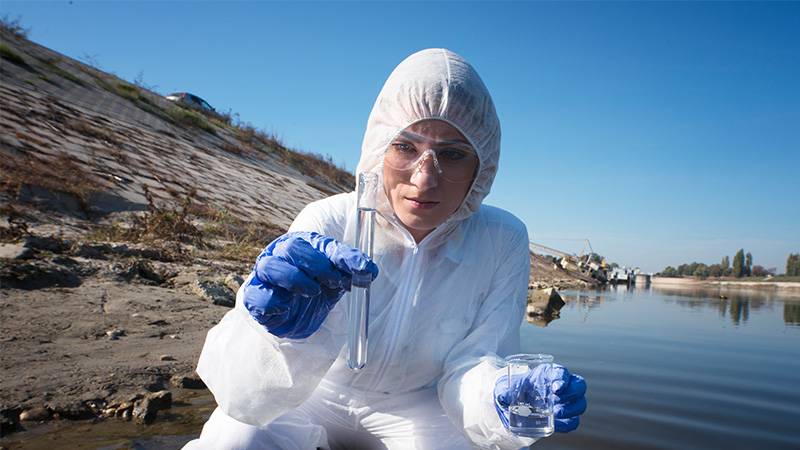
19. Geoscientist
Geoscientists, specializing in the intricate elements of Earth, analyze the various components and their responses to climate change.
Aspiring individuals in this field can secure positions in universities and research institutes, with a minimum prerequisite of a bachelor’s degree, typically in geoscience or environmental science.
20. Climatologist
Climatologists delve into the examination of prolonged weather patterns and the impact of carbon emissions on climate risks. Individuals pursuing careers in this field often find themselves employed by government agencies or research institutes.
To become part of this cadre of climate experts, a minimum requirement is a bachelor’s degree. However, for those concentrating on research, pursuing a master’s degree is often a valuable enhancement to their qualifications.
21. Renewable Energy Scientist
Renewable energy scientists dedicate themselves to researching energy sources that don’t contribute to climate change, focusing on areas like wind, water, solar, and geothermal heat.
These experts, with their advanced education, are committed to enhancing the efficiency and accessibility of renewable energy for the broader population.
To embark on a career as a renewable energy scientist, a graduate degree is a prerequisite, often accompanied by the need to secure sponsorship for research through employment with a supportive company.
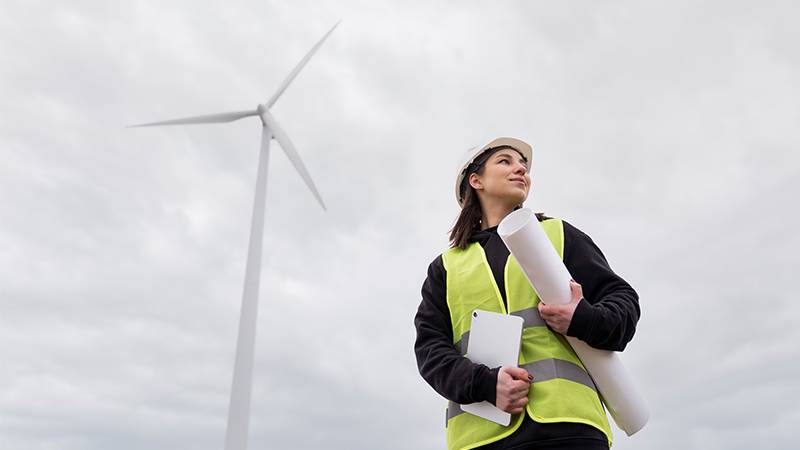
Frequently Asked Questions (FAQ)
The companies that are fighting climate change include Alphabet, Inc., Maersk, Nike, Johnson & Johnson, and China Mobile, among others. They are just some of the ones that are making efforts to reduce their carbon emissions and plan their partnerships on the same basis.
The job that you can do to save the planet can include growing vegetables locally, insulating homes and buildings for higher energy-efficiency, installing solar panels and equipment, working at a recycling facility, or earning a degree in engineering or environmental sciences and starting your research or educating others.
Environmental jobs that are in demand are environmental engineers, environmental lawyers, urban planners, conservation scientists and renewable energy installers. The best cities to find an environmental job in the US are San Francisco, Houston, and New York City.
To combat global warming, corporations are reducing energy consumption and waste, investing in deploying all-electric fleets and charging infrastructure, entering sustainable partnerships, and raising environmental awareness among employees, clients, and either stakeholder.
To save the environment, engineers can find more efficient ways to harness energy from renewable sources and make buildings less energy-dependent. They treat and distribute drinking water, and collect, treat, and dispose of wastewater. They also control air pollution management and solid-waste disposal and recycling.
Conclusion
Jobs in the climate change sector come in all shapes and sizes, perfect for a mix of talents and educational backgrounds. Whether you’re fresh out of high school or you’ve got a shiny diploma in engineering or environmental sciences, there’s a spot for you.
Think of it this way: some roles are stepping stones, great for getting your foot in the door, while others might require a bit more schooling. But don’t let that hold you back. The key is to find where you fit in this green revolution.
Ready to start your search? Dive into our Green Jobs Board. It’s simple – punch in what you’re good at and where you want to be, and our job finder will do the rest, lining up the best climate change jobs for you.
And guess what? It won’t cost you a penny.
So, why wait? Your green career could just be a click away!

